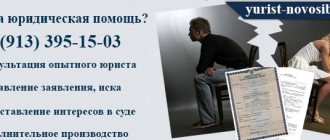A simple way to protect yourself from an unscrupulous insurance company
In the event of an accident, every driver who has an MTPL policy has the right to receive compensation from the insurance company. But in some cases, the insurance company may demand that the person at fault for the accident return the money that was paid to the victim (for example, if the driver at fault for the accident was drunk or fled the scene of the accident).
The right of the insurance company to demand that the person responsible for the accident return the money is called recourse, and the instrument of recourse payments itself was invented to punish unscrupulous drivers.
In practice, insurers often inflate the amount of recourse claims and ask to return even the money that they did not pay to the victims. We explain how to find out whether the insurance company has deceived you and how to reduce the amount of recourse if it has deceived you.
The concept of regress and its causal applications
In simple terms, recourse is a kind of document that one citizen presents to another. At the same time, the first one paid a certain amount of money for it and wants to return the money spent.
The right to present and the grounds for filing a recourse claim are regulated by Art. 1081 of the Civil Code of the Russian Federation. From this article you can find out in which cases it is allowed to make a contrary claim, and when it is not.
When citizens have the right to reclaim:
- it is necessary to compensate a certain amount of expenses. If, in a controversial situation, the debt of several persons was paid by one person, then he has the right to demand compensation from other debtors for the paid amount of the debt;
- If we talk about insurance companies, then after paying the insurance compensation to the injured party, the company’s employees can demand monetary compensation from the culprit of the accident;
- Controversial situations may arise in the relationship between employer and employee. For example, due to the fault of one of the employees, harm was caused to another employee, the head of the organization transferred compensation payments to the victim for the culprit. Therefore, the employer has the right to demand monetary compensation from the culprit of the incident, but within the limits of the amount spent;
- in family situations, citizens can demand that other relatives compensate for the costs of paying for utilities if the latter have not paid their bills for a long time.
Important!
In some cases, when compensating for damage for another person, a citizen does not have the right to demand compensation for his expenses. For example, a parent or legal representative of a minor cannot demand payment if he is legally responsible for his offspring until he reaches adulthood. This rule also applies to the situation with incapacitated citizens.
The right of recourse arises for joint and several debtors; this position is specified in Art. 325 of the Civil Code of the Russian Federation. This right of citizens arises not only from the law, but also from the signed agreement. For example, the guarantor repaid the debt to the bank for the borrower. In this case, the person who paid the bank the amount of the debt may demand compensation. The main feature is that he must make a proportional payment between all debtors, minus his share.
In general, the right of recourse arises if:
- there is a culprit who caused harm or damage, but at the same time there are other persons who bear joint and several liability with him;
- the person, in the presence of joint liability, paid the debt to the bank;
- Based on the provisions of the law or a valid contract, the right to submit a recourse claim appears.
As a general rule, the party that compensated the injured party can claim an amount of compensation within the limits of the amounts spent. It turns out that you can claim exactly the amount you spent. But there is an exception to the rule when it comes to cases of restrictions on payments directly stipulated by law. For example, this is possible, if the employer compensated for the harm caused by his employee, then he will not be able to demand more than the average monthly salary from the culprit (Article 241 of the Labor Code of the Russian Federation). It turns out that the employer cannot demand a large amount from his employee, even if he paid a more serious amount of compensation.
Citizens, when submitting a claim for recourse, can demand compensation for property damage, harm to health, and can also count on receiving compensation for material and moral damage.
How insurance companies deceive their clients. Step by step diagram
This point is for those who still have questions after the previous section. Here we explain in detail how the accounting of insurance companies works and how they deceive customers. If you already understand everything, immediately move on to the next part, “How to protect yourself?”
So, what happens after Alisher's car crashes into Boris's car?
Boris informs his insurance company about the accident. “Beta” estimates the damage caused to Boris’s car at 30 thousand rubles. She pays Boris this money.
↓
Transactions between insurance companies are governed by a direct indemnity agreement (DCA). The PWU regulates the settlement procedure of all insurance companies working with compulsory motor liability insurance. As part of the PPV agreement, Beta electronically sends Alpha all the necessary documents about the accident and a payment order confirming that the victim was paid 30 thousand rubles.
↓
“Alpha” reimburses “Beta” 30 thousand.
↓
Meanwhile, Boris does not agree with the amount of compensation and makes an independent examination confirming that the car was damaged for 50 thousand.
↓
Through a personal appeal or in court, Boris seeks for Beta to return another 20 thousand to him. Beta pays them.
↓
By law, insurers do not have the right to underestimate payments to their clients. If the insurance company incorrectly determined the amount of payments and the client was able to prove this, it pays the rest from its own funds.
When Beta has paid Boris another 20 thousand, it makes a zero claim on Alpha for that amount. A zero requirement means that the monetary transaction was carried out, but “Alpha” itself has nothing to do with it: Boris received 20 thousand from “Beta”.
The zero requirement is set so that there is no contradiction in the accounting documents (“Alpha” paid “Beta” 30 thousand, and “Beta” paid Boris 50 thousand for some reason). This way, the accountants of both insurance companies understand exactly how much the victim received.
↓
“Alpha” demands that Alisher pay her 50 thousand rubles. Alisher is sent checks confirming that Boris received 50 thousand from Beta.
↓
Alisher, who does not understand the peculiarities of the work of insurance 50 thousand.
↓
Alisher is sad, “Alpha” stole 20 thousand and is happy - there is no justice in life.
Regression in an accident
Situations when the Insurer can demand compensation from the car owner for expenses associated with monetary compensation to the injured party are not uncommon.
Representatives of the Investigative Committee have the right to put forward a contrary demand in the following cases:
- the driver through whose fault the accident occurred was driving while intoxicated;
- at the time of the traffic accident, the offender found himself with an expired license or was completely deprived of it;
- the citizen was driving a car without having a power of attorney to operate the vehicle, or was not included in the insurance;
- the truck driver has overstayed his or her inspection period;
- the person at fault for the accident did not have a valid MTPL policy;
- the offender left the scene;
- the accident occurred outside the period of validity of the motor vehicle license;
- the driver deliberately provoked an emergency situation.
It turns out that the Insurer can file a recourse only if the person at fault for the accident committed illegal actions. In cases where accidents occurred due to reasons beyond our control, there are no grounds to demand compensation.
Recourse claims from the insurance company and the right of subrogation (Recourse under compulsory motor liability insurance against the culprit of the accident)
With subrogation, the right to claim compensation for losses after an accident passes from the injured party to the insurer. The owner of a damaged car cannot claim compensation for damage, since it has already been paid by the insurance company. If a CASCO policy was issued for the car, the car owner will be fully paid for the restoration repairs. Next, the insurance company compensates for the associated costs by using the right of subrogation when filing a recourse claim. Typically, insurers take such action with a long delay, shortly before the three-year statute of limitations expires. To increase the amount of the claim, insurance companies additionally include in the list of requirements the payment by the defendant of interest for the use of other people's funds.
Limitation periods
At the legislative level, a general deadline is established for submitting a request for direct compensation.
In this case, the limitation period is established for three years (Article 196 of the Civil Code of the Russian Federation). This period begins to run from the moment the obligations are paid. At the same time, the missed statute of limitations can be restored if there are good reasons, these include the following points:
- the citizen was in prison and could not apply for compensation;
- at the time the statute of limitations expired, the person was in hospital treatment due to a serious illness;
- the citizen served in the army;
- The person was on a long business trip due to duty, and there was no opportunity to apply for reimbursement of expenses.
After reinstatement of the missed deadline, the citizen has approximately six months to review the case.
Drawing up a recourse claim
The law does not have an approved form for such statements, but the document must be drawn up in accordance with the general requirements for their preparation (Article 131 of the Code of Civil Procedure of the Russian Federation).
The claim must be drawn up in writing; it can be filled out by hand or using a printing device. The document must contain the following points:
- the name of the judicial authority to which it is filed;
- information about the plaintiff (full name, address). If the applicant is a legal entity, then it is necessary to indicate the name and location of the organization;
- information about the defendant, including address;
- the essence of the violation that became the reason for going to court;
- describe in detail the circumstances confirming the validity of the stated requirements;
- list the available evidence in the case;
- the amount of claims, if it is expressed in monetary terms;
- information that the applicant tried to resolve the controversial issue pre-trial (if provided for by law);
- The personal signature of the plaintiff and the date of drawing up the application are affixed.
We suggest using the sample recourse claim available on our website. It will help you draw up your application correctly, taking into account the norms of current legislation.
Download the statement of claim by way of recourse (sample)
Before going to court to resolve a controversial issue, it is necessary to resolve the issue peacefully. To do this, a demand for compensation for the funds spent is sent to the debtor. If you have not received a response or have received a refusal, you can safely go to court.
The law says that in specific cases, citizens can demand reimbursement of their expenses from other persons. But this is only possible if the rules of the procedure are followed and certain circumstances exist.
When there is no right of recourse
It should be borne in mind that a recourse claim does not arise if the person who compensated for the harm is himself responsible for it and does not have the right to shift it to another person.
A bank that has paid, by a court decision, in favor of its borrower compensation for losses caused by the imposition of life and health insurance services on the borrower from an insurance company, does not have the right to demand compensation for damage from the latter by way of recourse. The insurer is not responsible for this damage, since it was caused through the fault of the bank itself (Resolution of the Federal Antimonopoly Service dated November 16, 2012 in case No. A65-10298/2012).
An airport that, by a court decision, has compensated the airline for losses caused by late notification of the closure of the airfield due to the failure of lighting equipment due to excavation work on the taxiway in the area where the site abuts and damage to the cable, does not have the right to claim compensation from the repair company by way of recourse. who carried out the said work.
In this situation, the losses of the airport are due to the culpable inaction of its employees, who, in violation of clause 8.15 of the Federal Aviation Rules “Preparation and execution of flights in civil aviation of the Russian Federation,” approved. By Order of the Ministry of Transport of Russia dated July 31, 2009 N 128, information about the closure of the airport was not provided in time to the crew of the airline's aircraft during the period of making the decision on departure (Resolution of the Federal Antimonopoly Service of the Moscow Region dated May 28, 2013 in case No. A40-91458/12-118-845).
Procedure for filling out a recourse claim
The statement of claim is written according to the rules, but does not have certain rules that are regulated by law.
Based on the variety of situations, you can stop at the claim and provide a sample that was drawn up against the debtor for credit debt.
In this connection, his guarantor was forced to pay not his own debt, and demand from the debtor the spent funds that the creditor demanded:
- In the upper right corner you should indicate the name of the court to which the claim is being submitted and its address.
- Full name of the plaintiff, residential address, contact information.
- Full name of the defendant, residential address.
- The amount of state duty paid, and a link to the law about it.
- Title of the document (written in the middle).
- The main part of the paragraph should present the situation to the court in detail. Starting from the beginning, indicating the date and the available grounds. In this case, you should indicate the number of the loan agreement under which the defendant incurred a debt, and the role of the plaintiff, who acted as a guarantor and undertook to pay the amount of the accumulated debt. Indicate that the defendant, according to the specified agreement, did not fulfill its obligations, and therefore they transferred to the plaintiff. The plaintiff fulfilled his obligations and repaid the resulting credit debt in the amount of 25,000 rubles.
- Based on the above information, I fulfilled the defendant’s obligations in the amount of 25,000 rubles.
- Also, an attempt to pre-trial resolve the issue can be described here. To do this, the plaintiff had to first write a letter to the debtor, in which he put forward a demand for the return of paid funds to the creditor. If this request did not give a positive result, and the debtor did not respond within this period, a copy of this letter should be indicated in the attached documents, and it will serve as evidence for the court that the plaintiff is an unscrupulous citizen.
- If additional costs were incurred by the plaintiff during the decision, they must be reflected in this part, indicating the amount and purpose.
- With the words “I ask,” a demand is made to the court, based on existing articles of law.
- To recover by way of recourse from (full name of the defendant) the amount I paid under the loan agreement in the amount of 25,000 rubles.
- To recover legal costs in the amount of 5,000 rubles.
- Below is a list of necessary documents that confirm the plaintiff’s words. These are receipts for expenses, calculations of claims, a copy of the contract and other papers confirming obligations under recourse.
- At the end there is a date and signature.
Society is a clearly coordinated mechanism in which every detail, even the smallest, is responsible for one or another action. And, naturally, various changes and processes occur within this device, leading to certain consequences.









